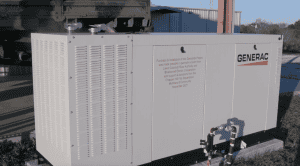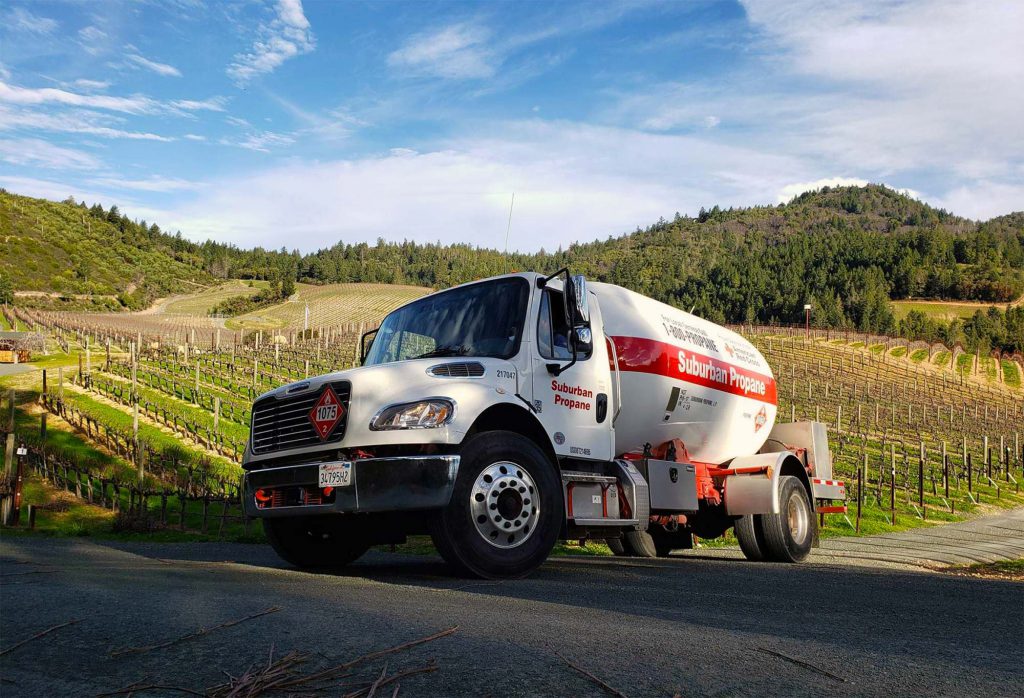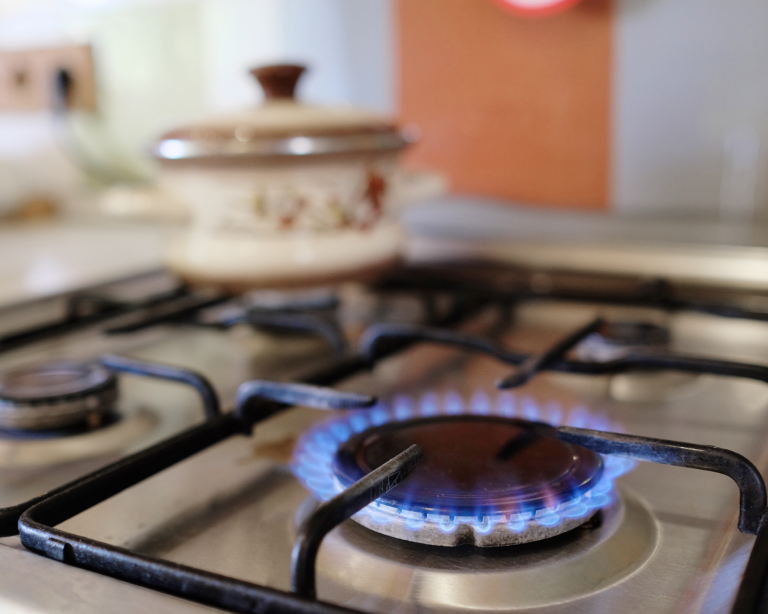Three Reasons to Future Proof Your Facility with Propane

As the old saying goes, the best defense is a good offense. That’s especially true when it comes to protecting commercial facilities from power outages. Fortunately, installing a propane-powered generator is one relatively simple way that facilities can stay up and running even when the grid goes down.
Power outages can happen at any time, and the cost of being unprepared can be significant, impacting systems like smoke and fire alarms, elevators, refrigeration units, and different types of equipment: heating and cooling, health and safety, or communications and security.
Propane standby generators offer an energy-efficient, reliable solution to keep facilities up and running during unexpected disruptions, protecting them from the damage a power outage can cause. Here are three compelling reasons to consider propane for a facility’s standby energy source not only during National Preparedness Month, but all year long:
The Chappell Hill Volunteer Fire Department in Texas can run its new generator for approximately three weeks on a full propane tank.
1) A propane standby generator keeps the lights on.
Having a reliable standby power solution is critical for facilities that need to stay up and running, no matter what. The promise of uninterrupted operation not only brings with it peace of mind for the facility’s owners, operators, and tenants, but it can also prevent a potentially overwhelming financial loss.
Resiliency is about more than just staying operational, though. A resilient building can function before, during, and after a power outage. A facility with standby power can resist hazards brought on by major disasters and even reduce the impact of a disruptive event. In fact, a volunteer fire department in Chappell Hill, Texas, discovered how unprepared it was for a prolonged power outage during Winter Storm Uri in February 2021.
“Winter Storm Uri was pretty rough for our department,” says Michael Kmiec, chief of the Chappell Hill Volunteer Fire Department, “We were experiencing rolling blackouts, and we didn’t have any heat at the fire station. People were calling to ask if our facility could serve as a warming station for area residents, but at the time, we didn’t have a working power source.”
After going days without power during Winter Storm Uri, the Chappell Hill Volunteer Fire Department installed a 1,000-gallon propane tank and standby generator to ensure they can deploy their trucks and power their facility if another power outage occurs.
Standby generators powered by propane are typically installed as fully automated systems that ramp up quickly to provide power after an electric grid disruption. In fact, propane systems supply supplemental electricity in as little as 10 seconds after an outage. And the generators’ autonomous design requires little to no effort from the building occupants to activate or maintain. Plus, installation is easy. Standby generators are safely and permanently installed outside a building. In addition, they are available with an automatic transfer switch that activates the generator in an outage.
2) Propane is a cleaner energy source than diesel.
After going days without power during Winter Storm Uri, the Chappell Hill Volunteer Fire Department installed a 1,000-gallon propane tank and standby generator to ensure they can deploy their trucks and power their facility if another power outage occurs.
Propane has many notable advantages when compared with its diesel counterparts. Its indefinite shelf life makes it the ideal back-up fuel for generators, whereas diesel degrades over time and has much higher maintenance costs.
Propane is non-toxic, non-poisonous, and won’t contaminate soil or water. It beats out diesel in terms of emissions, too. The U.S. Department of Energy (DOE) data shows 16 percent fewer carbon emissions per unit of energy for propane compared with diesel. In a study with the Propane Education & Research Council (PERC), the Gas Technology Institute (GTI) shows that, when compared with units using grid electricity, a 7-kilowatt propane-powered generator produces about 62 percent fewer sulfur oxide (SOx) emissions, and a 100-kilowatt unit produces up to 72 percent fewer SOx emissions.
“Now that we have the generator, we can better serve the community of Chappell Hill if a storm like that happens again,” Kmiec says. “We can run our new generator for approximately three weeks on a full propane tank. And we have the peace of mind knowing propane is a lot cleaner than diesel or gasoline.”
3) Propane is versatile.
The same energy source that powers a facility’s generator can power many other major energy systems, too. As a matter of fact, customers can attain whole-building resiliency by combining a propane generator with a suite of propane systems and appliances. Propane’s energy versatility extends to building heating, water heating, cooking appliances, fireplaces, clothes drying, and outdoor amenities. Choosing propane for these critical building systems can reduce the building’s reliance on standby power, often allowing facility managers to downsize to a smaller, more affordable backup unit.
A propane generator’s features make it easier for commercial buildings to achieve more comprehensive protection without having to go through the fuel storage, maintenance, reliability, and emissions challenges of a diesel-fueled generator.
Since Uri, more equipment has been purchased to address the frequent and intense severe weather events impacting the electrical grid. According to a study commissioned by the Propane Education & Research Council (PERC), 23 percent of the more than 4,000 surveyed have purchased a generator over the past two years and 54 percent have considered one since Winter Storm Uri.
Every year, billions of dollars in economic losses are caused by weather-related electricity outages, which account for more than 70 percent of all power outages nationwide. During this year’s National Preparedness Month, consider propane as a clean, versatile energy source to keep your operation running no matter what.
Courtesy of PERC (Propane Education Research Council).
Share this story, choose your platform:
Related Posts
Peace of mind
with dependable
fuel supply, when
you need it

COMMUNITY
700+
Locations providing exceptional service to local communities across 42 states
EXPERIENCE
95+
Years serving our customers and their communities. Customer satisfaction since 1928
CUSTOMER SERVICE
3,300+
Dedicated employees ready to assist you with quality service for all your fuel needs
RELIABILITY
24/7/365
We are here for you with customer service representatives standing by to take your call
Please call us 24/7/365 at 1-800-PROPANE



